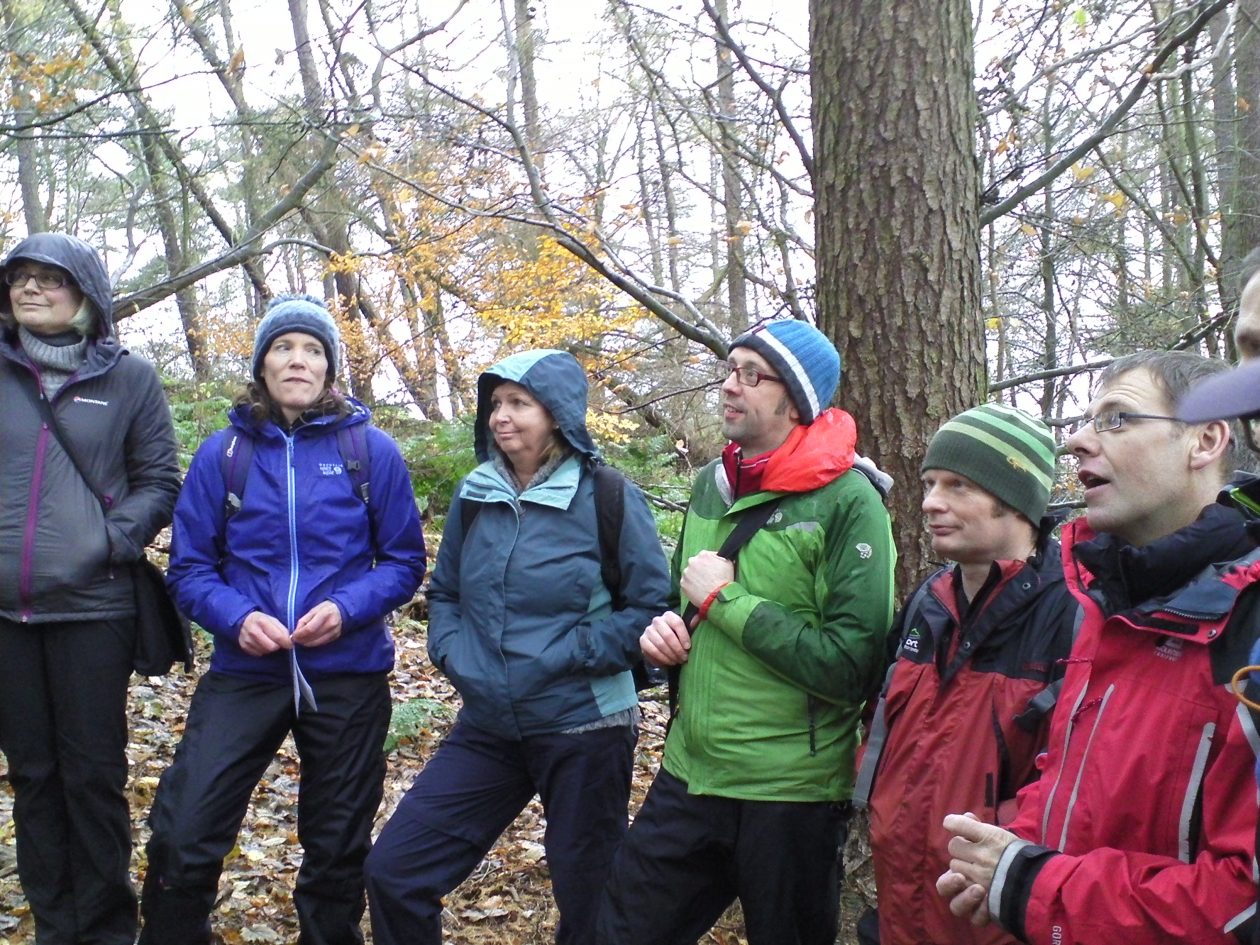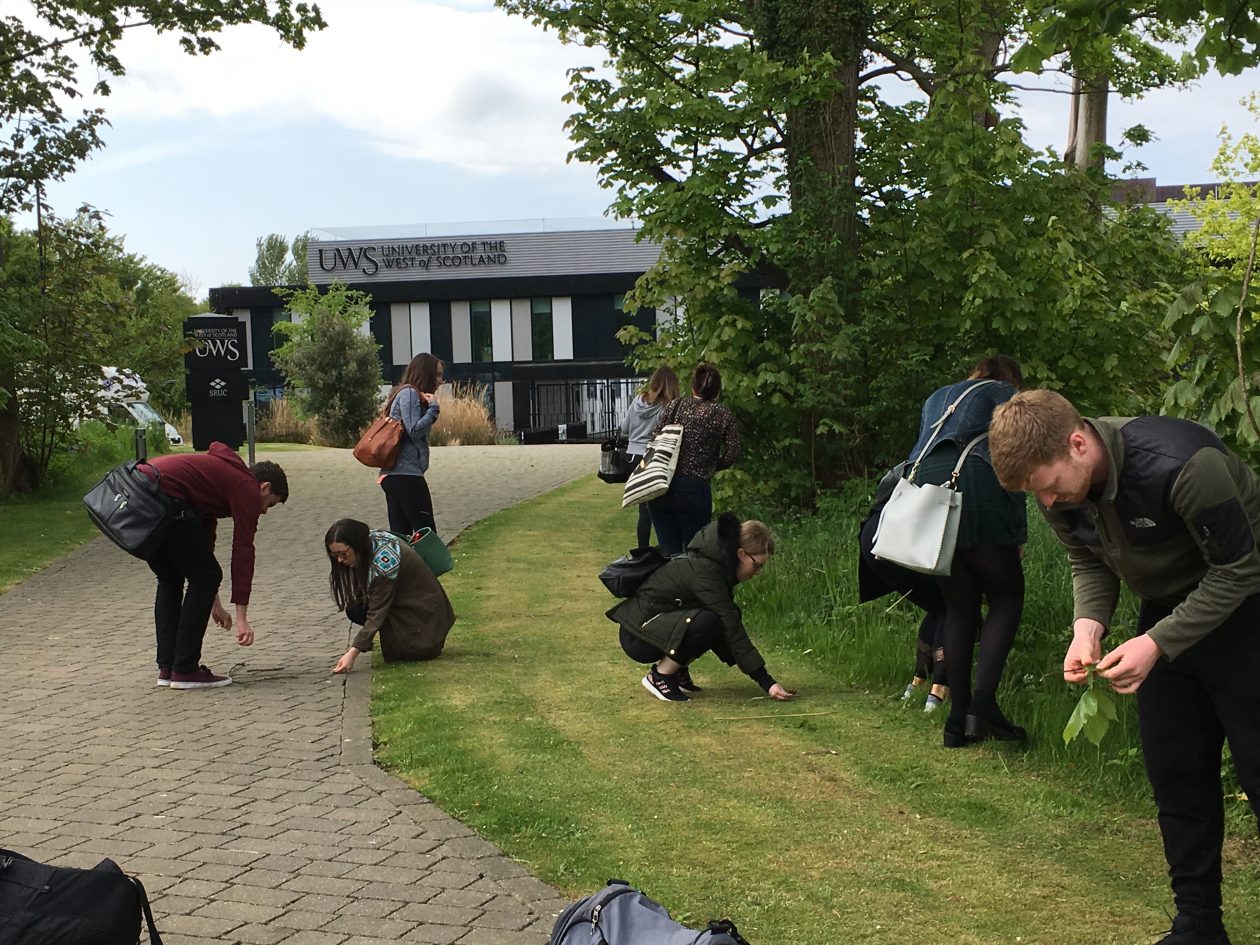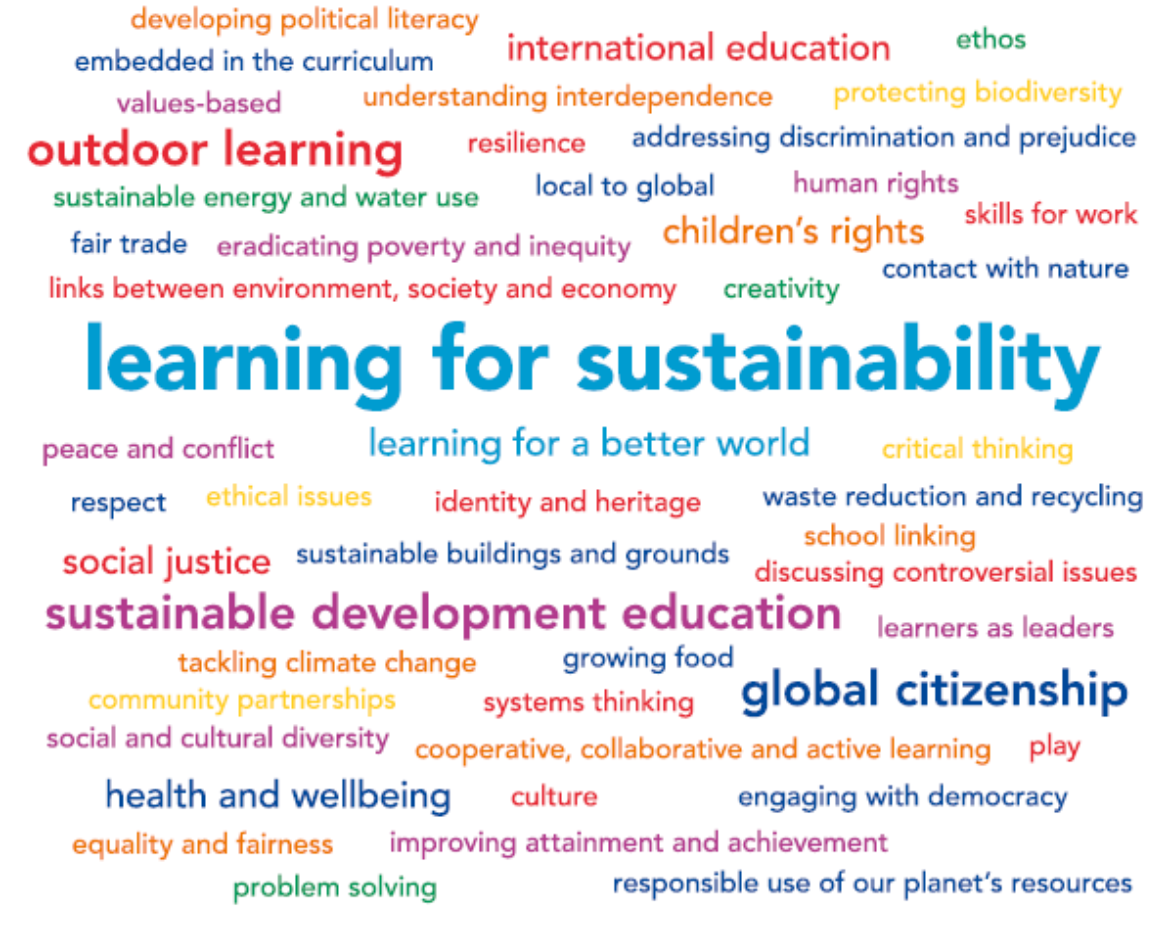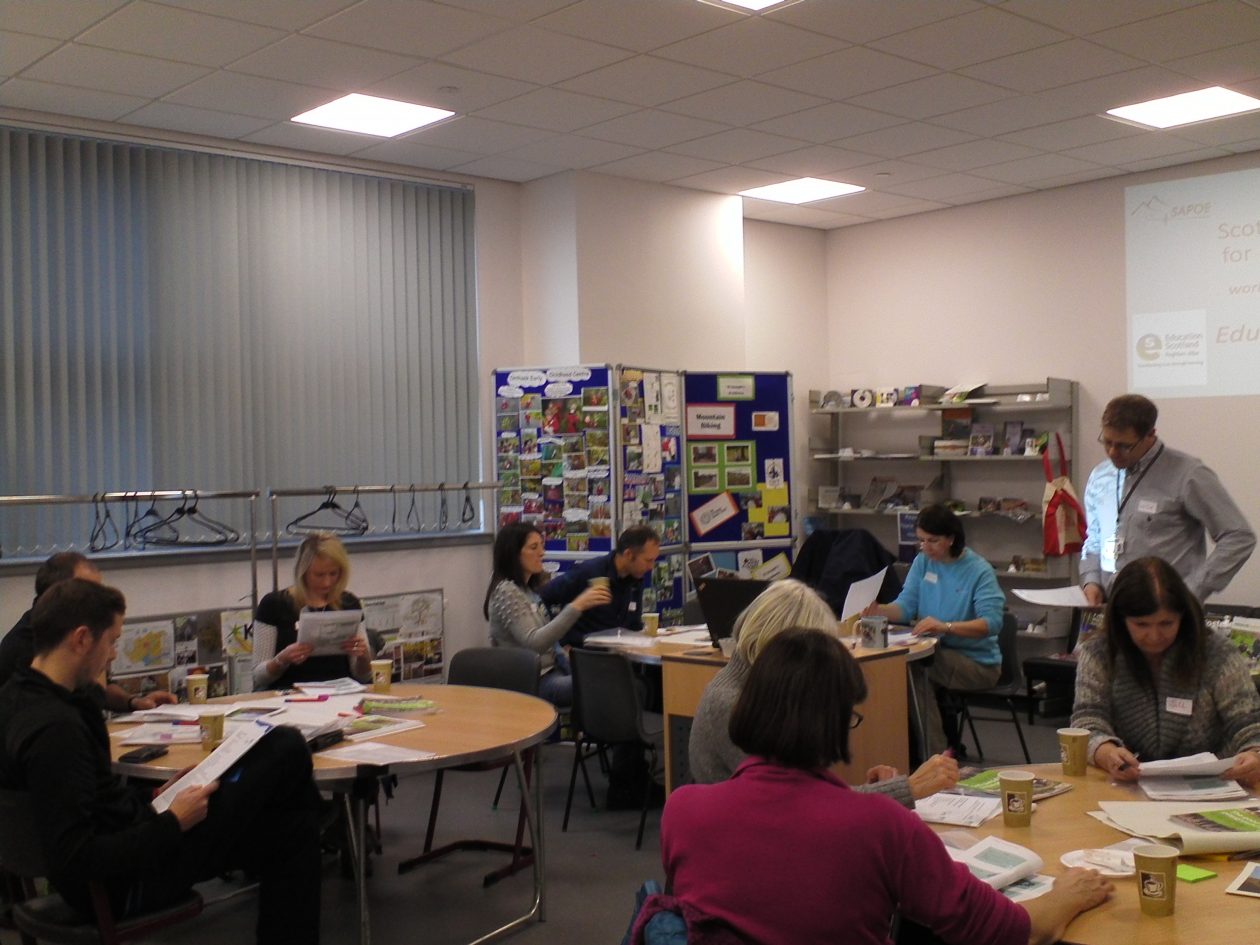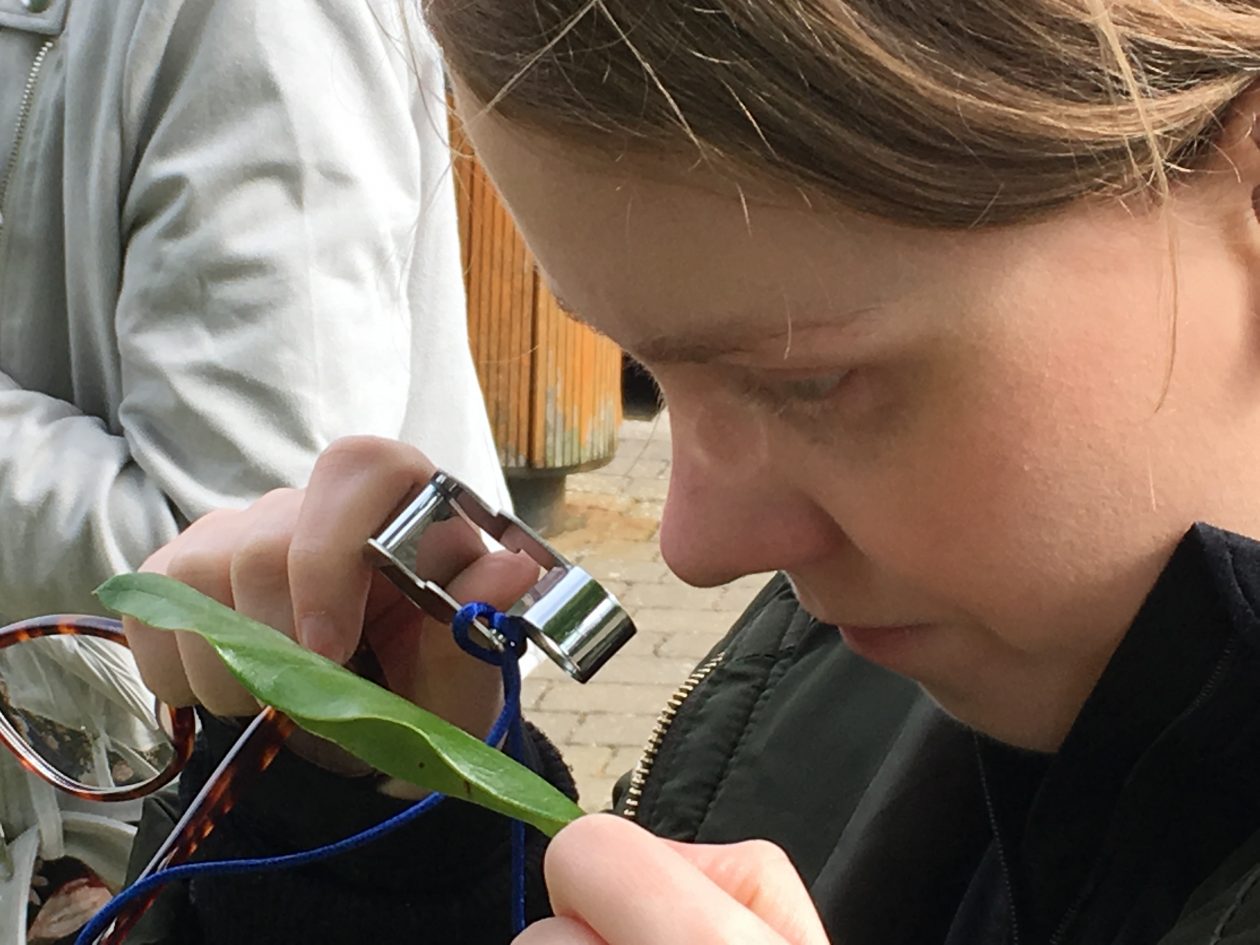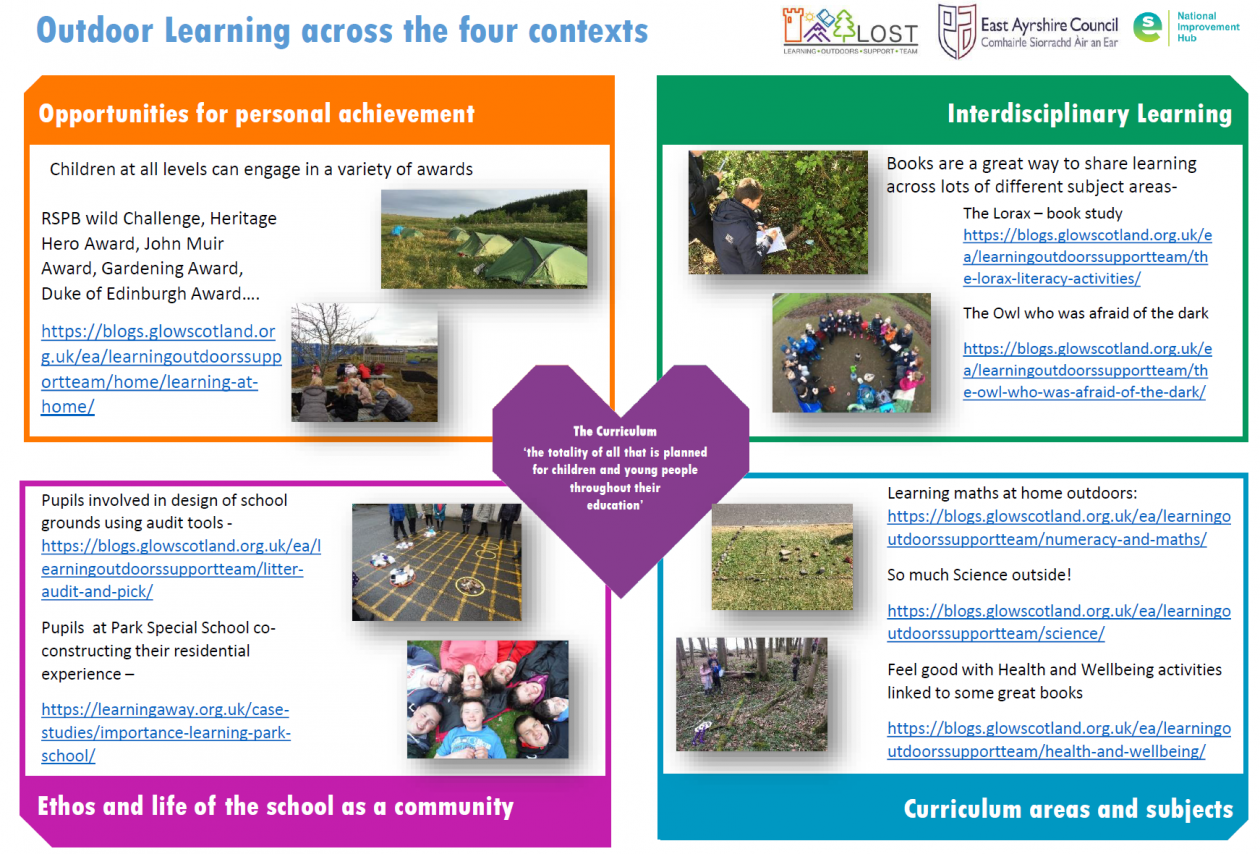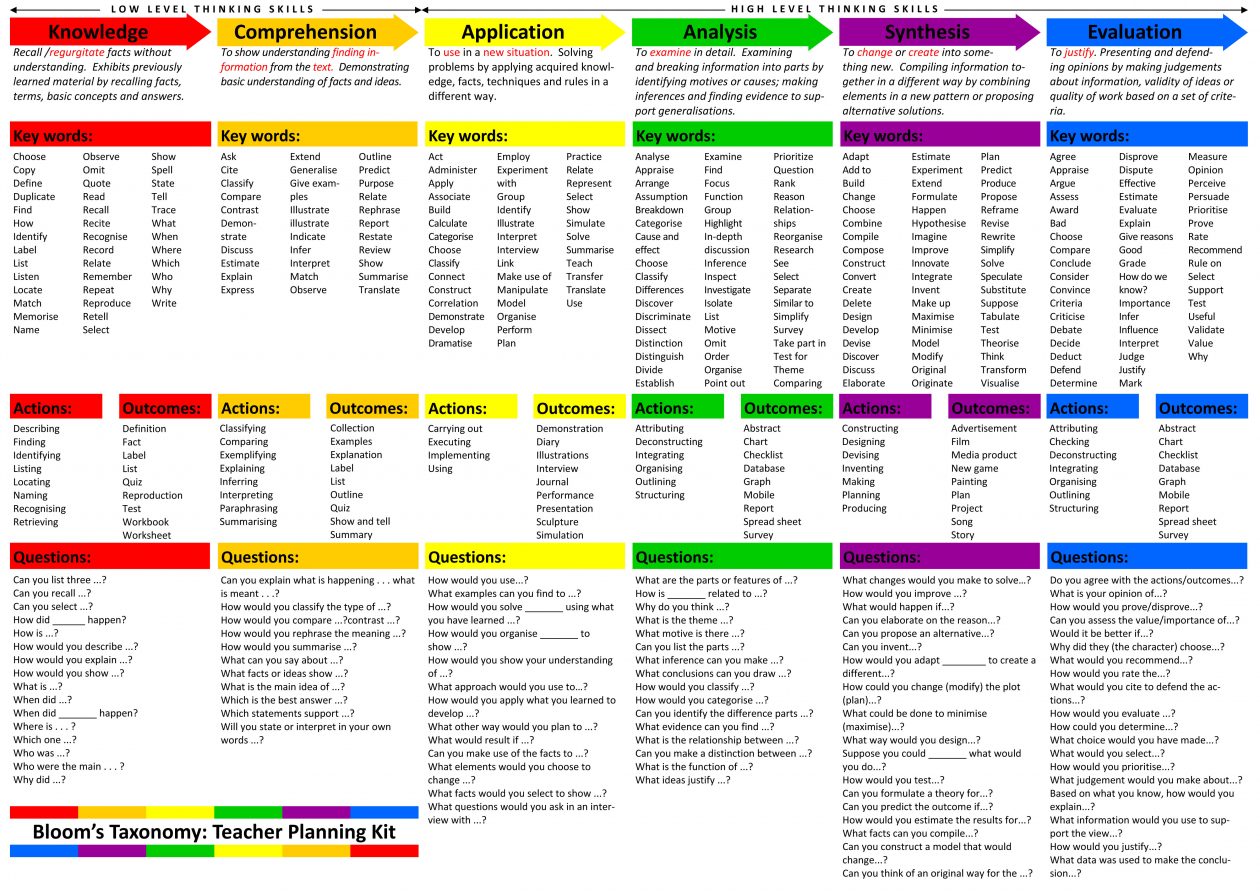Building capacity within schools for teaching and learning to take place in the outdoor context is a key aim of the Learning Outdoors Support Team. We value and recognise the expertise of teachers and understand that to embed outdoor learning in a sustainable way, delivered as an integral part of learning and teaching frequently and regularly in all classes, we must ensure teachers feel confident and safe in the outdoor environment.
LOST Training
We have a CPD offer for teachers in East Ayrshire Council, with sessions which cover a range of different topics and subjects. We are continually adding to these so please be sure to keep checking in with our Training Programme
We provide quality professional development to teachers and student teachers across our authority and on a national level. We have worked with Scottish Advisory Panel for Outdoor Education to adapt the lead teacher course to create an online delivery module. This module covers: Group Management, Assessment of learning, Planning and Pedagogy and Safety. It will give practical advice and applications for delivery of learning in the playground or local spaces.
SAPOE have produced an online e-learning module for Education Scotland which is hosted on the Professional Leadership and Learning platform. To access this module just register with your work email address and you will be linked to the start page.
Wanting to refresh your CfE knowledge and why Outdoor Learning can be so beneficial…
Key documents to read:
Curriculum for Excellence through Outdoor Learning
Outdoor Learning Practitioners Guide
Here we have shared the key documentation and policy relating to outdoor learning for teachers, these should be read in conjunction with the Statement for Practitioners from HM Chief Inspector of Education.
GTCS Standards
The GTCS Home and Professional Standards for both student and registered teachers explicitly embed outdoor learning, connection with nature and learning for sustainability as important strategies and approaches to teaching and learning.
Below are some extracts from the updated Standards which are illustrative of the clear requirement to engage with outdoor learning in a substantive way (through learning in different contexts, providing opportunities for IDL and real-life problem solving).
2 Professional Knowledge and Understanding
2.1.1 Have a depth of knowledge and understanding of Pedagogical Theories and Professional Practice
(which should include …)
- outdoor learning, including direct experience of nature and other learning within and beyond school boundaries;
2.1.3 Have a depth of knowledge and understanding of Curriculum Design
- principles of curriculum design and how these can be applied to learning in different sectors and contexts;
- the value of learning beyond curricular areas/subject boundaries and of cross curricular subjects, e.g. literacy, numeracy and health and wellbeing, Learning for Sustainability and digital literacy;
- principles of curriculum design and how these can be applied to learning in different sectors and contexts;
2.1.4 Have a depth of knowledge and understanding of Planning for Assessment, Teaching and Learning
- how to plan for effective assessment, teaching and learning, individually and collaboratively, across different contexts, and in order to support the needs of every learner;
- how to adapt planning approaches to ensure that the needs of every learner are effectively addressed;
3 Professional Skills and Abilities
3.1.2 Effectively utilise pedagogical approaches and resources
- create meaningful contexts for learners through a range of different learning environments;
- create opportunities for learning to be transformative in terms of challenging assumptions and expanding world views
3.1.3 Effectively utilise partnerships for learning and wellbeing
- support decision-making that is compatible with a sustainable future in a just and equitable world;
- connect learners to their dependence on the natural world and develop their sense of belonging to both the local and global community;
- connect relevance of learning to skills for life, learning and work
3.2 The Learning Context
3.2.1 Effectively organise and manage learning
- use a wide range of opportunities that stimulate and reflect ongoing learning in varied and dynamic learning environments;
- enable every learner to make full use of well-chosen resources, including digital technologies, to enhance learning, teaching and assessment, as appropriate;
- create opportunities for learning to be transformative in terms of challenging assumptions and expanding world views; and
- draw on a range of sources to evaluate the impact of the learning environment on every learner and learning and to challenge assumptions, surface bias and adapt provision, as appropriate.
3.2.3 Build positive, rights respecting relationships for learning
- encourage learners to respect and care for themselves, others and the natural world.
Outdoor Learning is one of the 3 pillars of Learning for Sustainability along with environmental education and global citizenship.
Learning for Sustainability is highlighted within the introduction to the standards:
Learning for Sustainability is a cross-curricular approach, which enables learners, educators, schools and their wider communities to build a socially just, sustainable and equitable society. An effective whole-school and community approach to LfS weaves together global citizenship, sustainable development education and outdoor learning to create coherent, rewarding and transformative learning experiences.
Learning for Sustainability is an important component of Curriculum for Excellence, an entitlement for learners and a core part of teachers’ Professional Standards. It supports the development of knowledge, skills and the values at the heart of the curriculum’s four capacities and provides a mechanism for promoting and working towards the UN’s Sustainable Development Goals’. Scottish Government Learning for Sustainability Action Plan 2019
For resources and information about Learning for Sustainability, the National Improvement Hub has a dedicated page with resources, case studies and policy.
More information about Learning for Sustainability in Scotland, can be found here: LfS Scotland
How Good is our School 4
School inspections in Scotland are typically based upon the questions contained in HGIOS. This document highlights the key questions and criteria relating to Outdoor Learning and Learning for Sustainability that schools can expect to inspect against.
How Good is Our School 4? – Outdoor Learning
GIRFEC in the Outdoors
This document highlights the application and relevance of outdoor learning to GIRFEC and SHANARRI: Outdoor Learning and GIRFEC
High Quality Outdoor Learning and Residential Experiences
Below is a guide to providing high quality outdoor learning and residential experiences. The document highlights the importance, impact and benefits of these experiences and how they can be achieved.
A Scottish guide to High Quality Outdoor Learning and Residential Experiences
Research, policy, articles and statements
On our website, we have collated documents from national organisations and policy from the Scottish Government and Education Scotland which highlight outdoor learning as a vital part of learning and teaching.
We have also listed a variety of research articles from across the world which demonstrate the impact of outdoor learning.
Policy, Research, Articles and Statements
Progression of outdoors engagement
This document demonstrates the ‘Natural Progression’ which is the way in which a person moves from simply being in the natural environment, to connecting with it, to becoming an active citizen who lives sustainably and support others to do the same: Natural Progression
Outdoor learning – the refreshed narrative
Learning Outdoors in East Ayrshire
Education Scotland
Education Scotland have recently completed a page of Outdoor Learning Resources on the National Improvement Hub.
Education Scotland have compiled a wakelet containing a wide range links to online learning resources to support outdoor learning and Learning for Sustainability: Education Scotland Wakelet
Case Studies
This page highlights examples of the impact of outdoor learning in practice. These studies will be added to and aim to give some ideas to teachers on how the outdoor contexts can be used: Case Studies
Blog Links
We have been working hard to ensure that there are a variety of resources available on our own website and are posting regular blog posts to share ideas and activities. These can be found here on our website. However, we are also beginning to populate a page with a variety of blog links to our partners and wider organisations: Blog Links
LOST YouTube Channel
For ideas on how to include outdoor learning in your curricular teaching, have a look at our YouTube channel. We have a variety of videos across the curricular areas and levels of the CfE, demonstrating how Outdoor Learning can be relevant and meaningful: LOST YouTube Channel
Partner CPD
We work with a wide range of partners across the country, including Learning through Landscapes, RSPB and the Field Studies Council who have been uploading valuable online CPD for teachers at this time. Follow the link below to find out more: Partner CPD
Lesson plans for Curriculum for Excellence outdoors
The best resource in any school is you, the teacher.
Teaching outside doesn’t need masses of planning and lots of resources. We suggest these simple steps.
- What is the learning intention – what do you want children to have learned a skill/ knowledge?
- How will you deliver the lesson? What approaches and techniques will you employ?
- What resources, artifacts, or place/space will you need?
- Assessment … how will you know that they have achieved it?
Use these questions as a starter and then pull on your coat and head outside. How does the learning intention relate to the real world? How can it be applied? eg – look for shape? (MTH) how old is that building? (SOC) why is the moss growing here but not there? (SCN)
Use the principles of curriculum design, blooms taxonomy questions and follow the pupils lead….
These websites have quality resources and are often mapped to the E’s and O’s.
Introduction to CfE Teaching Resources will guide you through EAC LOST lesson suggestions and accompanying resources mapped to CfE Es and Os.
Learning through Landscapes provides free learning resources.

